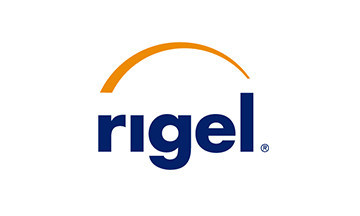Rigel Announces Publication of Data on REZLIDHIA® (Olutasidenib) in Post-Venetoclax Patients with Mutant IDH1 AML in Leukemia & Lymphoma
- None.
- None.
Insights
The recent findings on olutasidenib offer a promising outlook for patients with mutant IDH1 acute myeloid leukemia (AML) who have not responded to venetoclax-based regimens. As an oncologist, the high rate of composite complete remission (CRc) of 43.8% is noteworthy, especially given the limited options for relapsed/refractory (R/R) AML patients. The median time to CRc being 1.9 months indicates a relatively rapid response to treatment, which is important for this patient population with a historically poor prognosis.
Furthermore, the ability of olutasidenib to induce transfusion independence in a subset of patients is clinically significant. Transfusion independence is associated with improved quality of life and reduced healthcare costs, as it decreases the need for supportive care. While the sample size of the study is small, the results are consistent with the overall safety profile of olutasidenib, which is reassuring. However, larger studies would be needed to confirm these findings and to establish long-term efficacy and safety.
From a research perspective, the durability of the CRc, which had not yet reached its median at the data cut-off, suggests that olutasidenib could have a sustained therapeutic effect. This is particularly important for patients with mIDH1 AML, who typically face a relapse after initial treatments. The differentiation between patients who were relapsed and those who were refractory is also critical, as it provides insight into olutasidenib's efficacy across different patient subgroups within the R/R AML category.
Moreover, the combination of olutasidenib with azacitidine and the resulting efficacy points to the potential for combination therapies to improve outcomes for patients who have previously failed venetoclax regimens. This could lead to changes in treatment algorithms and provide a new standard of care for this challenging patient population.
For investors and stakeholders, the positive results from the Phase 2 study of olutasidenib could signal a significant market opportunity for Rigel Pharmaceuticals. The AML treatment landscape is in need of novel therapies, particularly for R/R cases and a drug that shows promise in this area could capture a sizable market share. It's important to monitor the drug's progress through further clinical trials and regulatory review, as these will be critical in determining its commercial success.
The company's stock valuation could be influenced by the potential of olutasidenib to become a standard treatment option for mIDH1 AML. As such, these findings may have a positive impact on Rigel's financial performance, subject to the usual risks and uncertainties inherent in the biopharmaceutical industry.
- Olutasidenib induced durable composite complete remission in
43.8% of patients relapsed or refractory to prior venetoclax-based regimens - Safety was consistent with the overall profile of olutasidenib
- Olutasidenib may offer a valuable treatment option for patients with mIDH1 previously treated with venetoclax
"Venetoclax in combination with a hypomethylating agent is currently standard treatment for patients with newly diagnosed AML who are unfit for intensive chemotherapy, including those with mIDH1. When this therapy fails, patients historically have had limited treatment options and poor prognoses," said Jorge E. Cortes, M.D., Director, Georgia Cancer Center, Cecil F. Whitaker Jr., GRA Eminent Scholar Chair in Cancer, and Phase 2 trial investigator. "The findings from these analyses suggest that REZLIDHIA may provide an effective treatment for patients with AML following failure of venetoclax combination therapy. REZLIDHIA induced durable remissions consistent with those observed in the pivotal trial and had a favorable tolerability profile in this challenging to treat patient population, representing a valuable treatment option."
"These data support REZLIDHIA's efficacy and well-characterized safety profile in patients with mIDH1 R/R AML who had previously been treated with venetoclax combination regimens," said Raul Rodriguez, Rigel's president and CEO. "These analyses are important because they provide valuable insights into the potential benefit of REZLIDHIA in different segments of the mIDH1 R/R AML patient population."
Key points from the paper are summarized below:
- Olutasidenib alone or in combination with azacitidine demonstrated potential efficacy in patients with AML following failure of venetoclax combination therapy
- Of the 18 patients with prior venetoclax treatment, 10 were relapsed, 6 were refractory, and 2 had complete remission with incomplete hematologic recovery (CRi) to a venetoclax combination
- Of the 16 R/R patients, 7 (
43.8% ) achieved a composite complete remission (CRc), 4 (25% ) achieved complete remission (CR), and 1 (6.3% ) achieved CR with partial hematologic recovery (CRh). Both patients with CRi at study entry achieved CR - Median time to CRc was 1.9 months (range 1-2.8). As of the data cut-off (June 18, 2021), median duration of CRc was not reached (range, 1.2-NR, ongoing at 30.4+ months)
- Red blood cell and platelet transfusion independence was achieved in 2/12 (
17% ) and 2/7 (29% ) transfusion-dependent R/R patients at baseline, respectively - Safety was consistent with the overall profile of olutasidenib
The paper, titled "Olutasidenib in post-venetoclax patients with mutant isocitrate dehydrogenase 1 (mIDH1) acute myeloid leukemia (AML)," was published online in Leukemia & Lymphoma and can be accessed here.
About AML
Acute myeloid leukemia (AML) is a rapidly progressing cancer of the blood and bone marrow that affects myeloid cells, which normally develop into various types of mature blood cells. AML occurs primarily in adults and accounts for about 1 percent of all adult cancers. The American Cancer Society estimates that there will be about 20,800 new cases in
Relapsed AML affects about half of all patients who, following treatment and remission, experience a return of leukemia cells in the bone marrow.3 Refractory AML, which affects between 10 and 40 percent of newly diagnosed patients, occurs when a patient fails to achieve remission even after intensive treatment.4 Quality of life declines for patients with each successive line of treatment for AML, and well-tolerated treatments in relapsed or refractory disease remain an unmet need.
About REZLIDHIA®
INDICATION
REZLIDHIA is indicated for the treatment of adult patients with relapsed or refractory acute myeloid leukemia (AML) with a susceptible isocitrate dehydrogenase-1 (IDH1) mutation as detected by an FDA-approved test.
IMPORTANT SAFETY INFORMATION
WARNING: DIFFERENTIATION SYNDROME Differentiation syndrome, which can be fatal, can occur with REZLIDHIA treatment. Symptoms may include dyspnea, pulmonary infiltrates/pleuropericardial effusion, kidney injury, hypotension, fever, and weight gain. If differentiation syndrome is suspected, withhold REZLIDHIA and initiate treatment with corticosteroids and hemodynamic monitoring until symptom resolution. |
WARNINGS AND PRECAUTIONS
Differentiation Syndrome
REZLIDHIA can cause differentiation syndrome. In the clinical trial of REZLIDHIA in patients with relapsed or refractory AML, differentiation syndrome occurred in
If differentiation syndrome is suspected, temporarily withhold REZLIDHIA and initiate systemic corticosteroids (e.g., dexamethasone 10 mg IV every 12 hours) for a minimum of 3 days and until resolution of signs and symptoms. If concomitant leukocytosis is observed, initiate treatment with hydroxyurea, as clinically indicated. Taper corticosteroids and hydroxyurea after resolution of symptoms. Differentiation syndrome may recur with premature discontinuation of corticosteroids and/or hydroxyurea treatment. Institute supportive measures and hemodynamic monitoring until improvement; withhold dose of REZLIDHIA and consider dose reduction based on recurrence.
Hepatotoxicity
REZLIDHIA can cause hepatotoxicity, presenting as increased alanine aminotransferase (ALT), increased aspartate aminotransferase (AST), increased blood alkaline phosphatase, and/or elevated bilirubin. Of 153 patients with relapsed or refractory AML who received REZLIDHIA, hepatotoxicity occurred in
ADVERSE REACTIONS
The most common (≥
DRUG INTERACTIONS
- Avoid concomitant use of REZLIDHIA with strong or moderate CYP3A inducers.
- Avoid concomitant use of REZLIDHIA with sensitive CYP3A substrates unless otherwise instructed in the substrates prescribing information. If concomitant use is unavoidable, monitor patients for loss of therapeutic effect of these drugs.
LACTATION
Advise women not to breastfeed during treatment with REZLIDHIA and for 2 weeks after the last dose.
GERIATRIC USE
No overall differences in effectiveness were observed between patients 65 years and older and younger patients. Compared to patients younger than 65 years of age, an increase in incidence of hepatotoxicity and hypertension was observed in patients ≥65 years of age.
HEPATIC IMPAIRMENT
In patients with mild or moderate hepatic impairment, closely monitor for increased probability of differentiation syndrome.
Click here for Full Prescribing Information, including Boxed WARNING.
To report side effects of prescription drugs to the FDA, visit www.fda.gov/medwatch or call 1-800-FDA-1088 (800-332-1088).
REZLIDHIA is a registered trademark of Rigel Pharmaceuticals, Inc.
About Rigel
Rigel Pharmaceuticals, Inc. (Nasdaq: RIGL) is a biotechnology company dedicated to discovering, developing and providing novel therapies that significantly improve the lives of patients with hematologic disorders and cancer. Founded in 1996, Rigel is based in
- de Botton S, et al. Olutasidenib (FT-2102) induces durable complete remissions in patients with relapsed or refractory IDH1-mutated AML. Blood Advances. February 1, 2023.
doi: https://doi.org/10.1182/bloodadvances.2022009411
The American Cancer Society. Key Statistics for Acute Myeloid Leukemia (AML). Revised January 17, 2024. Accessed Feb. 19, 2024: https://www.cancer.org/cancer/acute-myeloid-leukemia/about/key-statistics.html - Leukaemia Care. Relapse in Acute Myeloid Leukaemia (AML). Version 3. Reviewed October 2021. Accessed Feb 19, 2024: https://media.leukaemiacare.org.uk/wp-content/uploads/Relapse-in-Acute-Myeloid-Leukaemia-AML-Web-Version.pdf
- Thol F, Schlenk RF, Heuser M, Ganser A. How I treat refractory and early relapsed acute myeloid leukemia. Blood (2015) 126 (3): 319-27. doi: https://doi.org/10.1182/blood-2014-10-551911
Forward-Looking Statements
This press release contains forward-looking statements relating to, among other things, that olutasidenib may provide a meaningful approach to the treatment of Post-Venetoclax Patients with Mutant IDH1 AML. Any statements contained in this press release that are not statements of historical fact may be deemed to be forward-looking statements. Forward-looking statements can be identified by words such as "may", "potential", "look forward", "believe", "will" and similar expressions in reference to future periods. Forward-looking statements are neither historical facts nor assurances of future performance. Instead, they are based on Rigel's current beliefs, expectations, and assumptions and hence they inherently involve significant risks, uncertainties and changes in circumstances that are difficult to predict and many of which are outside of our control. Therefore, you should not rely on any of these forward-looking statements. Actual results and the timing of events could differ materially from those anticipated in such forward looking statements as a result of these risks and uncertainties, which include, without limitation, risks and uncertainties associated with the FDA, European Medicines Agency, PMDA or other regulatory authorities may make adverse decisions regarding olutasidenib; risks that clinical trials may not be predictive of real-world results or of results in subsequent clinical trials; risks that olutasidenib may have unintended side effects, adverse reactions or incidents of misuses; the availability of resources to develop Rigel's product candidates; market competition; as well as other risks detailed from time to time in Rigel's reports filed with the Securities and Exchange Commission, including its Annual Report on Form 10-K for the year ended December 31, 2023 and subsequent filings. Any forward-looking statement made by us in this press release is based only on information currently available to us and speaks only as of the date on which it is made. Rigel does not undertake any obligation to update forward-looking statements, whether written or oral, that may be made from time to time, whether as a result of new information, future developments or otherwise, and expressly disclaims any obligation or undertaking to release publicly any updates or revisions to any forward-looking statements contained herein, except as required by law.
Contact for Investors & Media:
Investors:
Rigel Pharmaceuticals, Inc.
650.624.1232
ir@rigel.com
Media:
David Rosen
Argot Partners
212.600.1902
david.rosen@argotpartners.com
![]() View original content to download multimedia:https://www.prnewswire.com/news-releases/rigel-announces-publication-of-data-on-rezlidhia-olutasidenib-in-post-venetoclax-patients-with-mutant-idh1-aml-in-leukemia--lymphoma-302107833.html
View original content to download multimedia:https://www.prnewswire.com/news-releases/rigel-announces-publication-of-data-on-rezlidhia-olutasidenib-in-post-venetoclax-patients-with-mutant-idh1-aml-in-leukemia--lymphoma-302107833.html
SOURCE Rigel Pharmaceuticals, Inc.








